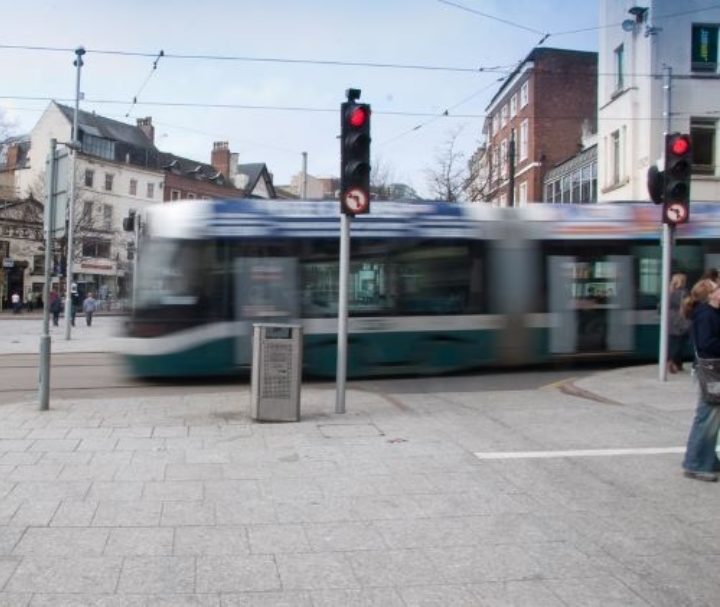The climate decade: The UK is full of ‘oven-ready’ solutions
With little time to cut global emissions - we must start focusing on scaling up reliable solutions
By Kathy Grenville
Share
Last updated:

The climate decade has begun.
Raging fires in Australia (and balmy temperatures at home) remind us that according to the science, we have just 10 years to halve global emissions and to stand a chance of keeping global warming within ‘safe’ limits.
With so little time, we must focus on scaling up tried-and-tested practical solutions that can deliver guaranteed emission cuts. And, fortunately, there are many examples around the UK of local authorities, schools, businesses, sports clubs, churches and theatres that are already implementing simple carbon-cutting measures.
As hosts of this year’s COP26 climate talks, the UK should showcase the very best real-world innovation. The Budget, now set to take place in March, must prove our ambition to the world.
Here are three ready-to-go solutions that we would like to see the government bring in over the next few months, helping to demonstrably put us on the path to net zero before COP26 opens.
Braver transport policies

Ending our fossil-fuel dependence is a huge task – particularly, encouraging us to swap our cars for cleaner modes of transport. But for leaders prepared to make tough choices, progress is possible, as leaders around the UK are already showing.
Nottingham’s workplace parking levy charges businesses with more than 11 parking spaces a fee. Money raised is used to fund tram routes, electric buses, cycling and public transport smartcards in the city.
The scheme was criticised as “unfair” and “out of touch” by some when it was announced a decade ago. But it has raised more than £53 million for local bus and tram services as well as reducing congestion in the city, and could soon be replicated elsewhere – in October, the Scottish Parliament cleared the way for local authorities (including COP26 host city Glasgow) to implement their own versions.
Last year Councillor Dave Liversidge told the Nottingham Post: “It’s thanks to the levy that Nottingham has been in such a strong position to improve air quality, with falling nitrogen dioxide emissions largely due to our investment in sustainable public transport, made possible with levy funding.”
In 2013, councillors in the London borough of Waltham Forest launched plans to encourage walking and cycling and create more pleasant neighbourhoods.
Their comprehensive package of measures includes new facilities, road redesigns, and the restriction of cars in residential areas.
The scheme prompted street demonstrations featuring prop coffins, the largest town-hall protest the authority has ever seen, and predictions from critics that councillors would be voted out by angry residents. But councillors say the ballot-box revolt never materialised, and that most residents – and many local businesses – now see the benefits.
Traffic has been reduced on most roads, and a study by King’s College London found five-year-olds in the borough will enjoy longer lives thanks to improvements in air quality linked to the council’s work.
Faster, cheaper retrofits
Energy used in homes is responsible for about 14% of the UK’s CO2 emissions – and many of these buildings are woefully inefficient. The cost of inefficiency goes beyond higher emissions: people are putting up with cold, damp homes and paying higher energy bills than they should.
Retrofit solutions that can work quickly at scale are crucial. One great example is the Energiesprong system, imported to the UK from the Netherlands, which allows the whole-house retrofit of multiple properties (typically social housing) at once. New walls and roofs are manufactured off-site and delivered with doors and windows already in place. These sections are then fitted around the existing house.
Energiesprong promises a 30-year energy performance guarantee and delivers impressive results. The first scheme in Nottingham has triggered an 86% reduction in CO2 emissions.
For a high-tech, low-fuss retrofit solution, take a peak at Q-Bot, a robot that sprays insulating foam under floors.
Q-Bot lowers energy bills by an average of £150 a year. As there’s no need to take up the entire floor, the time to complete under-floor insulation in one property is cut from weeks to days.
The company estimates its robot could boost warmth and reduce emissions in 8 million properties in the UK.
Sustainable schools can also help us hit net zero. There are more than 100,000 school buildings in the UK, many of which are hugely inefficient. Tackling this challenge would cut emissions and help inspire young people, who are already demanding action through school climate strikes and other activism.
Actions with many other benefits
The key to winning public support for climate action may lie in the “co-benefits” – the additional wins that come with reducing emissions. These include cleaner air and better health, warmer housing, new jobs and more pleasant, safer travel.
Take London’s Repowering – an organisation that installs community-owned renewable power stations on social housing blocks and community buildings in London. Repowering’s holistic approach lowers emissions, tackles fuel poverty and creates mentoring opportunities for young people.
There are more great examples across the UK – from the scheme in Birmingham helping black and minority ethnic communities get into cycling, to a partnership tackling fuel poverty in Blackpool. Such organisations are engaging and involving communities – and so winning their support.
As awareness spreads and people see these benefits for themselves, public support for climate action will grow still further. This virtuous circle can help us pick up the pace and create new opportunities. At Ashden, we’ve seen the positive response to our free climate co-benefits toolkit, full of practical examples and case studies.
Ecosystems of innovation
We will need all the solutions above and many more as we take on the climate emergency.
Luckily, the innovation we need is out there. Ashden will be showcasing top innovators throughout the year as we build up to Glasgow – in particular, at a solutions hub set to take place during London Climate Action Week in June. Let’s make solutions the bedrock of our efforts at COP26 and every crucial moment of this climate decade.
Share